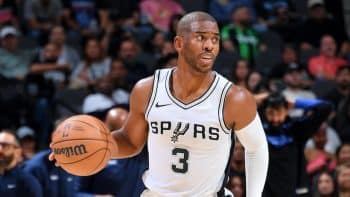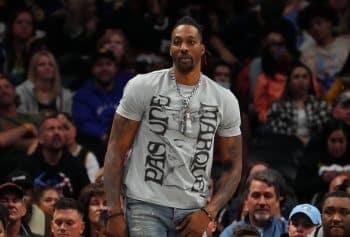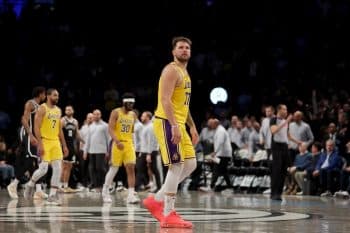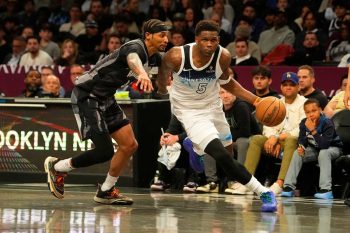NBA
Russell Westbrook’s Remarkable Adjusted Statistics
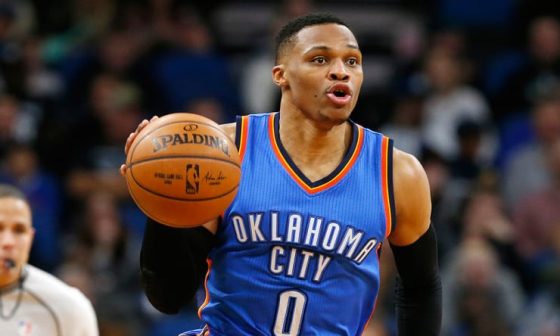
NBA play in the 1960’s began with a bang.
The statistics posted by both players and teams over the first few years of that decade are simply absurd, almost to the point of being inconceivable.
These numbers were, in some respects, similar to stats baseball players posted during MLB’s “steroid era,” except that instead of using illegal performance enhancing drugs to boost their statistics, NBA players simply used extra possessions. More on that in a minute.
The 1961-62 season, in particular, is legendary, as it represents the peak of this statistical boom.
Consider this: If a player averaged over 50 points per game this season, pretty good chance he’d win the MVP award, right? What if that player also averaged over 25 rebounds per game to go along with those 50 points?
Well, Wilt Chamberlain averaged 50.4 points and 25.7 rebounds in 1961-62. He did not win MVP. In fact, he received fewer than 10 percent of all first-place votes. In that context, it’s extraordinary to think that Steph Curry became the first unanimous MVP in league history last season, receiving 100 percent of first-place votes, after averaging 30.1 points, 5.4 boards and 6.7 assists.
In 2016-17, there is currently only one player (Russell Westbrook) averaging over 28 points per game. In 1961-62, there were six players that averaged at least 30 points per game: Chamberlain (50.4 points per game), Elgin Baylor (38.3), Walt Bellamy (31.6), Bob Pettit (31.1), Oscar Robertson (30.8) and Jerry West (30.8).
This season, LeBron James leads the NBA in minutes per game at 37.5 mpg. In 1961-62, there were 12 players that averaged over 38 minutes per contest, led by Chamberlain, who averaged 48.5 mpg (playing all but eight minutes of the entire season, including games that went into overtime).
And not only did superstars log an incredible number of minutes, there were far more possessions per contest, which obviously increases the opportunities for each player to accrue points, rebounds and assists. Because turnovers weren’t recorded as an official stat by the NBA prior to the 1977-78 season, we don’t have an official record for pace in the 1960’s. However, according to research done by at BasketballReference.com, the league average pace in 1961-62 was roughly 126.2, with Robertson’s Cincinnati Royals averaging approximately 125.0 possessions per 48 minutes. League average for pace this season is 96.3 possessions per-48.
Which brings us back to that infamous MVP race. Bill Russell, who averaged “only” 16.9 points, 23.6 rebounds and 4.5 assists that season, was named the league’s Most Valuable Player in 1961-62. Finishing third in the MVP voting was none other than Robertson, who incredibly averaged 30.8 points, 12.5 rebounds and 11.4 assists. As we know, it’s the only time in league history when a player averaged a triple-double over an entire season. In fact, it’s the only time any player has even come close. Until this year…
So, this begs the question: What would Russell Westbrook average if he played the same number of minutes at the same pace as Oscar did in 1961-62?
For the first variable in our equation, let’s account for the pace of play. According to NBA.com, the Oklahoma City Thunder are currently averaging 100.2 possessions per 48 minutes this season.
Thus, if we want to get a more apt comparison between Oscar in 1961-62 and Russ this season, we need to adjust Westbrook’s stat line to match the frenetic pace of play that Robertson enjoyed. Thus, we need to multiply Westbrook’s current per-game averages (30.8 points, 10.6 rebounds and 10.4 assists) by a factor of 1.248.
Here’s what Westbrook’s pace-adjusted 2016-17 stat line looks like:
38.4 points, 13.2 rebounds and 13.0 assists per game.
Mind-boggling, I know. However, we aren’t done just yet. If we want a more accurate “apples-to-apples” comparison, we also need to account for the vast discrepancy in playing time.
Oscar averaged 44.3 minutes per game in 1961-62. Westbrook is logging just 34.7 minutes a night this season. That’s nearly 10 minutes less per game. What happens if we add an extra 9.6 minutes per game (a factor of 1.277) to Russell’s current production?
The finished product – extrapolated out to match for not only pace but playing time as well – looks like this:
49.1 points, 16.9 rebounds and 16.6 assists per game.
Even with some expected diminishing returns based on fatigue (the speed and demands of the game are very different today than in the 60s), that final tally is jaw-dropping and highlights just how incredibly unprecedented Russell Westbrook’s current production truly is. His workload and output remain historic in any context.
